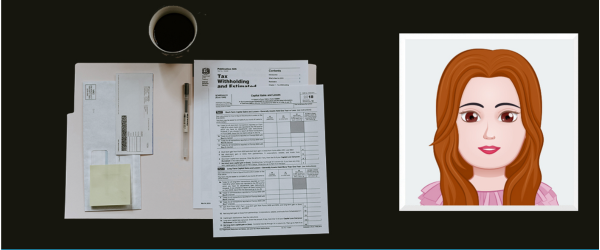There’s so much to keep track of when you’re working the cam: schedules, scripting, client needs and wants. Even keeping your space broadcast-ready can cut into your already limited free time. Then, before you know it, it’s tax time.
If you aren’t using a professional accountant, you may not be aware of all the things you can take as write-offs — things you buy and use for cam work all the time. Are you getting all the deductions you deserve? Let’s see.
Disclaimer: I am not, in fact, a professional accountant. While this is informed advice, this article is not a substitute for a licensed professional.
Hardware and Software
The equipment and programs you have to buy in order to do cam work are generally deductible the year you purchase them. This can include your webcam(s), lighting, microphones, computer and required software you paid for.
Let’s say though, that you use your business computer for checking your personal emails or non-professional social media accounts. In that case, you’ll need to gauge what percentage of the computer is used for work and claim only that percentage. Ditto your wifi bill. If you’re using a phone or tablet for work, you can claim that too.
Setting the Mood
Make a list of everything you’ve bought specifically for cam work ambiance. Now, highlight everything that is essential — that you could not do your job well without. This might include background music used solely for cam time — or even a Spotify membership. If you’ve bought specific décor to set up your space (that you wouldn’t have bought unless you did cam work), sheets, pillows or props, they can all be written off.
What about the room itself? Sorry, but you can only write off the work room if you don’t use it for anything else, like sleeping or living.
What about clothes?
Writing off clothes can be tricky. In fact, some models think this is best avoided in the case of an audit. But you can write off the clothes you wear during work time in some circumstances.
Some clothing write-offs — professional office attire for example — cannot be claimed as a business expense. But costumes or required uniforms can. One of the caveats for writing off clothing is that the wearables in question can only be used for work. If your new “work lingerie” is worn on a date, for example, it’s no longer a valid write-off. But clothing you buy and use only during work time is acceptable.
Retirement? Seriously?
Are you saving for retirement? No judgement if you’re not. But if you are, that’s money that you can subtract from your gross income. If you had say, an office job, part of each paycheck might be deducted and put into a tax-free retirement account.
The fact that you don’t work in a stuffy office doesn’t prevent you from putting away some retirement savings. It’s not difficult to set up a SEP (simplified employee pension) IRA (individual retirement arrangement) when you file your taxes. Depending on how much you’re saving, this can lead to a nice deduction.
Inventory
The very idea of taking inventory might seem strange. But if you’re selling products — worn lingerie for example — you’ll definitely want to start each tax year with an inventory.
When you sell goods, you claim what you spend on the goods themselves, since you only claim your profits as income. You can also claim packaging materials and shipping fees. If you have so many items for sale that you need a whole warehouse (you probably don’t, but it’s okay to dream), your warehousing fees can be deducted too!
Marketing and Professional Hires
This may be where a lot of your hidden expenses are. It’s vital to keep track of how much you’re spending on advertising. Whether this is in print media, like a local paper or magazine, paid social media ads or hiring a marketing specialist to handle your ads, all of that is deductible.
Along these lines, if you’ve taken a course in say, public speaking, makeup, modeling or another topic specifically to improve your job performance, that may also be a valid write-off.
Nobody wants to invite an audit, but nor does anyone want to leave money on the table. By knowing what deductions are valid and which are best avoided, you’re likely to cut your tax bill and keep more of what’s yours.
—
Wednesday Lee Friday is an eclectic writer of fact and fiction. When she’s not writing, Wednesday is a day sleeper and small business owner. She also enjoys black cats, lemon soda, horror fiction and binging HBO. Find her on Twitter at @WednesFri and contact her via wednes@ynotcam.com.
Background header image by Pixabay via Pexels.










